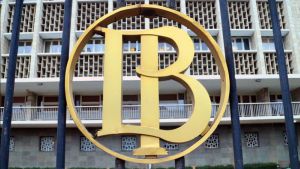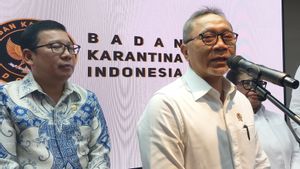BALI - President Joko Widodo (Jokowi) invited the heads of delegates from the G20 Summit to plant mangroves (badows) in the Ngurah Rai People's Forest Park (Tahura), Bali.
Presidential Chief of Staff (KSP) Moeldoko said the President's invitation to plant mangroves emphasized Indonesia's and global commitments in dealing with climate change.
"The visit of the President and the leaders of the G20 countries to Tahura shows strong evidence of joint work in dealing with climate change whose impact can threaten global prosperity and development," he said in Nusa Dua Bali, Wednesday, November 16.
According to Moeldoko, the President's activities in Tahura this morning strengthened Indonesia's seriousness in restoring and rehabilitating mangrove forests and restoring critical Indonesian land.
"Mangrove planting with heads of state shows solidarity, cooperation, and global collaboration in overcoming environmental changes," he said.
Meanwhile, mangroves are President Joko Widodo's choice because mangrove forests in Indonesia have the highest biodiversity among other mangrove forests.
It is recorded that there are 92 natural mangrove forest species owned by Indonesia.
In addition, Indonesia's mangrove forest absorption capacity is able to absorb 3.1 billion tons of carbon.
This is equivalent to gas emissions from vehicles of 2.5 billion vehicles a year. Very large and meaningful numbers for climate change," he added.
World Bank data as of July 2021 shows that Indonesia has a mangrove forest covering an area of 3.5 million hectares.
This figure represents 23 percent of the world's mangrove forest area.
Despite its large area, Indonesia continues to build a rumpin nursery center to produce hundreds of millions of quality plant-ready seeds.
"The seeds will be implanted on critical land to restore the function of the land," said Moeldoko.
In an effort to restore critical land, the government has rehabilitated three million critical lands in the 2010-2019 period.
Indonesia is also trying to rehabilitate mangrove forests after 600,000 hectares by 2024.
"We have also succeeded in developing an electric car ecosystem and building the largest solar power plant in Indonesia," said Moeldoko.
As one of the priority agendas of the G20 Summit, the energy transition is also the main discussion at the conference. Indonesia is also focused on utilizing new and renewable energy, including biofuels, as well as the development of clean energy-based industries.
The government is also committed to building the largest green industry in the world in North Kalimantan.
One of the themes of bilateral talks was the construction of the Kayan Hydroelectric Power Plant (PLTA) in Bulungan, North Kalimantan.
"The signing of the MoU with Sumitomo to build the Kayan hydropower plant with a capacity of 9,000 Mega Watt is proof of our commitment to the energy transition," concluded Moeldoko.
The English, Chinese, Japanese, Arabic, and French versions are automatically generated by the AI. So there may still be inaccuracies in translating, please always see Indonesian as our main language. (system supported by DigitalSiber.id)













